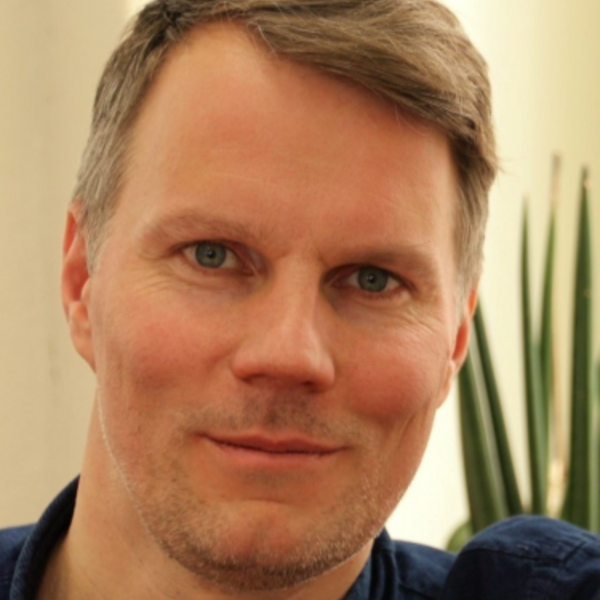
December 2023 - February 2024
Mail: juhan.saharov(at)ut(dot)ee
Juhan Saharov works as Research Fellow in Political Theory at the Johan Skytte Institute of Political Studies at the University of Tartu. He earned his Ph.D. in 2021 at the University of Tartu for his thesis, "From Economic Independence to Political Sovereignty: Inventing 'Self-Management' in Soviet Estonia." His research focuses on the economic-political debates in the Soviet republics and East-Central Europe during the late-socialist and perestroika period. Additionally, he has written about the market-socialist experiments conducted in the Estonian SSR during 1983–85. Currently, he is a member of the research group funded by the Estonian Research Council, "Self-Determination of Peoples in Historical Perspective" at the University of Tartu.
The project at the Kolleg investigates the relationship between science and democratization in the late state-socialist regimes, focusing on the role of expert languages. By „expert language“ I mean a set of concepts, methods, and arguments used by a scholarly community of a particular discipline (economy, sociology, forecasting, law, etc). In late socialism but especially during the perestroika period (1985–89), the expert language functioned as a resource and a channel for transfering concepts, arguments, and methods from the scientific to the political sphere. Expert language not only connected scholarly communities with policymakers by creating a common vocabulary (such as cybernetics and systems analysis during the 1960s–70s), but in some cases, it also enabled the use of its concepts and methods to make new radical claims, serving as a platform for political innovation. One example was the "scenario method" in the Soviet Estonia, which local experts utilized in 1987–88 to open up the democratic debate on Estonian alternative futures. Simultaneously, the Forecasting Institute of the Czechoslovak Academy of Sciences in Prague was involved in preparing reform scenarios for the local communist party. The project compares the Estonian and Czechoslovakian cases, arguing that expert language served not only as a discursive opportunity for reform-minded scholars but, in some cases, also as a participatory strategy for mobilizing democratic debate. The project explores the networking between both communities, which evolved into a relationship between Estonian Popular Front (Rahvarinne) and Civic Forum (Občanské fórum). The project traces the careers of forecasters, such as Edgar Savisaar in Estonia and Miloš Zeman in Czechoslovakia, both of whom entered politics in the late 1980s. The project examines this transnational trend in Eastern Europe during this period and asks: How did some forecasting experts become top politicians with the help of their professional language? Why did expert language play an important role in opening up public debate in some state-socialist milieus but not in others? Which expert languages persisted in the policymaking processes, and which ones vanished during the 1990s?
Juhan Saharov, “From Future Scenarios to Sovereignty Declarations: Estonian Cyberspeak and the Breakup of the Soviet Union”, Europe-Asia Studies,Vol. 74, Issue 5 (2022): 809–831.
Juhan Saharov, “From an Economic Term to a Political Concept: The Conceptual Innovation of ‘Self-Management’ in Soviet Estonia”, Contributions to the History of Concepts,Vol. 16, Issue 1 (2021): 116–140.
Juhan Saharov, “Combining Laclauian Discourse Analysis and Framing Theory: Václav Havel’s ‘Hegemonic Rhetoric’ in Charter 77”, Politologický časopis / Czech Journal of Political Science, Issue 2 (2021): 186–203.
Juhan Saharov, “Eesti perestroika keeled” [The Languages of Estonian Perestroika], Acta Historica Tallinnensia. Vol. 29, Issue 1 (2023): 93–127.
Juhan Saharov, “From Workers into Partners: Economic Experiments in Services and Agriculture in the Estonian SSR in 1986–87“, in Peripheral Liberalism. Market Economists and The Liberal Script Outside the West. Edited by Tobias Rupprecht (Oxford University Press, forthcoming).
Juhan Saharov, Justinas Dementavičius, “The Languages of Transition in the Soviet Republics:Interpreting Perestroikain Estonia and Lithuania in 1985–89”, in Transitions. Comparative and Transnational European Perspectives on the History of a Political Concept. Edited by Agustín Cosovschi and Pablo Sanchez León (Berghahn, forthcoming).
Juhan Saharov, “The Power of Concepts: From “Self-Management” to “Sovereignty” in the Soviet Estonia (1987–88)”, in Imagining Statehood and Constitutionalism in Europe. Edited by Jan Komárek (Cambridge University Press, forthcoming).
Juhan Saharov, “An Economic Innovation as an Icebreaker: The Contractual Work Experiment in Soviet Estonia in 1985”, in The Baltic States and the End of the Cold War. Edited by Kaarel Piirimäe and Olaf Mertelsmann (Berlin: Peter Lang, 2018): 65–84.
Vello Pettai, Juhan Saharov, “Estonia”, in The Palgrave Handbook of Social Democracy in Europe. Edited by Jean-Michel De Waele, Fabien Escalona, and Mathieu Vieira (London: Palgrave Macmillan 2013): 434−451.
Please find more information on Juhan Saharov on the website of the University of Tartu.